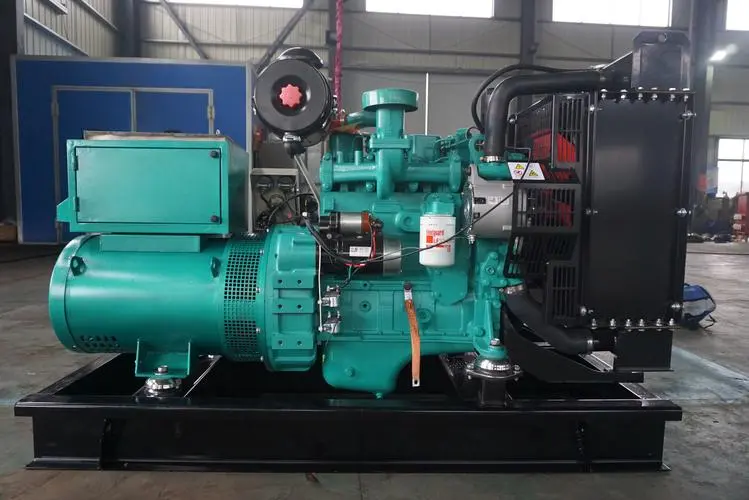Introduction:
Remote locations often lack access to a reliable power grid, making it challenging to ensure a continuous supply of electricity. In such scenarios, diesel generators emerge as a dependable solution to meet the power requirements of these off-grid areas. Diesel generators are widely used for providing electricity in remote locations due to their robustness, efficiency, and ability to operate continuously for extended periods. This article explores the importance of diesel generators in remote areas, their working principles, key features, and the benefits they offer in powering off-grid locations.
Importance of Diesel Generators in Remote Areas:
In remote areas, access to electricity is crucial for various purposes such as powering homes, businesses, telecommunications, healthcare facilities, and essential services. However, establishing a traditional power grid in these locations can be logistically challenging and economically unfeasible due to factors like terrain, distance, and cost constraints. Diesel generators offer a practical solution to overcome these challenges by providing a reliable source of power that is independent of the main grid.
Remote areas often experience frequent power outages or have no access to electricity at all. In such situations, diesel generators serve as a reliable backup power source, ensuring continuity of essential services and operations. They are commonly used in remote regions such as rural communities, construction sites, mining operations, military bases, disaster relief areas, and remote telecom towers where a constant power supply is essential.
Working Principles of Diesel Generators:

Diesel generators operate on the principle of converting chemical energy stored in diesel fuel into mechanical energy through combustion. The basic components of a diesel generator include an engine, alternator, fuel system, cooling system, and control panel. The engine, typically powered by a diesel fuel combustion process, drives the alternator to produce electricity. The alternator converts the mechanical energy from the engine into electrical energy through electromagnetic induction.
The fuel system of a diesel generator consists of a fuel tank, fuel pump, fuel filters, and injectors that deliver the required amount of diesel fuel to the engine for combustion. The cooling system helps maintain the optimal operating temperature of the engine by dissipating excess heat generated during the combustion process. The control panel of the generator manages the start-up, operation, and shutdown processes, monitoring parameters such as voltage, frequency, and load to ensure efficient and safe operation.
Key Features of Diesel Generators for Remote Control:
1. Robustness and Durability: Diesel generators are known for their robust design and durability, making them suitable for operation in harsh and remote environments. They can withstand extreme weather conditions, rough terrains, and heavy usage, ensuring reliable performance in challenging situations.
2. High Fuel Efficiency: Diesel generators are more fuel-efficient compared to gasoline generators, providing a cost-effective solution for long-term power generation in remote areas. The higher energy density of diesel fuel allows diesel generators to operate for longer durations on a single tank of fuel, reducing the need for frequent refueling.
3. Continuous Power Supply: Diesel generators can operate continuously for extended periods, making them ideal for powering off-grid locations where access to electricity is limited. Their ability to provide a constant power supply ensures uninterrupted operation of critical systems and equipment in remote areas.
4. 500kw diesel generator for backup power : Diesel generators require regular maintenance to ensure optimal performance, but they are relatively easy to maintain compared to other types of generators. Routine tasks such as fuel filter replacement, oil changes, and engine inspections can be performed without specialized tools or expertise, making diesel generators a practical choice for remote locations.
5. Remote Monitoring and Control: Modern diesel generators are equipped with advanced monitoring and control systems that allow remote monitoring of key parameters such as fuel level, battery status, engine performance, and power output. Remote control features enable operators to start, stop, and monitor the generator from a centralized location, improving operational efficiency and reducing downtime.
Benefits of Diesel Generators in Powering Off-Grid Locations:
1. Reliability: Diesel generators are renowned for their reliability and ability to provide a consistent power supply in remote areas where grid power is unavailable or unreliable. This reliability is crucial for ensuring the continuous operation of essential services and critical infrastructure in off-grid locations.
2. Versatility: Diesel generators are versatile power sources that can be used for a wide range of applications, from powering small households to large industrial operations. Their adaptability makes them suitable for diverse requirements in remote areas, including emergency backup power, primary power supply, and temporary power solutions.
3. Cost-Effectiveness: While the initial investment in a diesel generator may be higher than other power sources, the long-term cost-effectiveness of diesel generators makes them a preferred choice for remote locations. Their fuel efficiency, durability, and low maintenance requirements result in lower operating costs over the generator's lifespan.
4. Independence from Grid Power: Diesel generators offer independence from grid power, allowing remote locations to generate their own electricity without relying on external sources. This self-sufficiency is crucial in areas where grid connectivity is limited or unreliable, providing a reliable and stable power supply for residents and businesses.
5. Rapid Deployment: Diesel generators can be quickly deployed to remote locations to meet immediate power needs, making them ideal for emergency situations, disaster relief efforts, and temporary power requirements. Their portability and ease of installation enable rapid deployment without the need for extensive infrastructure or setup.
Conclusion:
Diesel generators play a vital role in powering off-grid locations by providing a reliable and continuous source of electricity. Their robustness, efficiency, and versatility make them well-suited for diverse applications in remote areas where grid power is unavailable or unreliable. With their ability to offer independence from the main grid, cost-effectiveness, and rapid deployment capabilities, diesel generators serve as an essential power solution for remote control in various industries and sectors. As technology continues to advance, diesel generators are likely to evolve further, offering enhanced features and capabilities to meet the growing power demands of off-grid locations.
